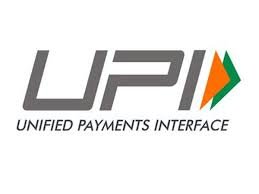According to sources cited by the Financial Times (FT), the Adani Group is in talks to enter the e-commerce and payments sector, UPI, as the conglomerate aims to establish a digital company to compete with Google and Mukesh Ambani’s Reliance Industries in the world’s most populous country.
The company is currently contemplating applying for a license to operate on the Unified Payments Interface (UPI), a widely utilized public digital payments network in India. Additionally, it is in discussions with banks to finalize plans for a co-branded Adani credit card, according to sources cited by the Financial Times (FT).

According to the news report, the company is also in talks to offer online shopping through the Open Network for Digital Commerce (ONDC), India’s rapidly growing government-backed public e-commerce network. India’s digital public infrastructure “stack,” which includes ONDC and UPI, is popular among organizations looking to establish consumer technology businesses and attracts hundreds of millions of consumers each month.
If approved, the services will be available through Adani One, the company’s consumer app launched in late 2022, which currently offers travel-related services such as hotel and flight bookings.
According to sources cited by the Financial Times, the company’s e-commerce and payments services (UPI) would initially target its existing customer base, which includes hundreds of millions of people when considering travelers at its airports and customers of its gas and electricity services.
“For instance, users could earn loyalty points through bill payments or duty-free purchases and redeem them for online shopping,” one source said. Targeting existing users in this way would provide Adani “a platform to expand into much larger areas,” noted another source. Additionally, Adani plans to integrate NDTV content into its app this year. However, Adani declined to comment, according to the FT report.
 The plans emerge as Gautam Adani, the politically influential founder of the group, seeks to overcome past challenges and expand his business into rapidly growing consumer markets. According to the Financial Times, Adani has built an extensive network of ports, airports, and power plants, making him the second-richest man in Asia.
The plans emerge as Gautam Adani, the politically influential founder of the group, seeks to overcome past challenges and expand his business into rapidly growing consumer markets. According to the Financial Times, Adani has built an extensive network of ports, airports, and power plants, making him the second-richest man in Asia.
Following a controversy last year, where US short seller Hindenburg Research accused Adani of fraud and market manipulation, the company is now advocating for consumer rights. Due to the founder’s close ties with Prime Minister Narendra Modi, these allegations led to a $150 billion drop in the value of Adani’s listed stocks and increased criticism from opposition figures.
Allegation against Adani UPI
 Throughout India’s current election season, the firm has remained prominent. Following a Financial Times investigation last week that alleged Adani had misrepresented lower-quality coal as more expensive, cleaner fuel in sales to a state utility, the opposition has threatened to investigate the company if they come into power. Modi has also accused his opponents of receiving “black money” from Adani.
Throughout India’s current election season, the firm has remained prominent. Following a Financial Times investigation last week that alleged Adani had misrepresented lower-quality coal as more expensive, cleaner fuel in sales to a state utility, the opposition has threatened to investigate the company if they come into power. Modi has also accused his opponents of receiving “black money” from Adani.
The group denies any wrongdoing, and the investigation into the Hindenburg allegations by India’s securities regulator is still ongoing. Despite this, Adani’s businesses have thrived, with the company’s shares, particularly Adani Enterprises, recovering nearly all the losses from the previous year.
In conclusion, the Adani Group’s ambitious foray into the e-commerce and payments sectors (UPI) underscores its commitment to diversifying and expanding its presence in rapidly growing consumer markets. By leveraging its extensive infrastructure and targeting its existing customer base, Adani aims to compete with industry giants like Google and Reliance Industries. Despite facing significant challenges and controversies, including allegations of fraud and market manipulation, the group remains resilient and continues to recover from past setbacks. As Adani navigates these new ventures (UPI) and the ongoing political and regulatory scrutiny, its future success will hinge on its ability to adapt to market demands, maintain consumer trust, and uphold transparency in its business practices.










